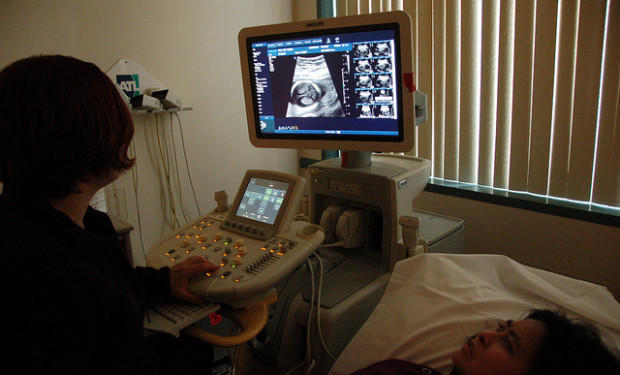Forced ultrasound provision in NC abortion law struck down
Women seeking abortions will no longer be required to undergo an ultrasounds, but other restrictions will remain in place.
This article is the first in a three-part series discussing the recent court rulings on abortion laws.
On December 22, 2014, the United States Court of Appeals for the Fourth Circuit overturned a North Carolina law that required abortion providers to perform an ultrasound and describe its contents in detail to women seeking an abortion. Before the ruling, women seeking an abortion were required to give their informed consent to an abortion in compliance with N.C. Gen Stat. § 90-21.82.
The law required doctors to perform an ultrasound and inform the patient of conditions associated with her pregnancy, regardless of whether she wanted to hear this information. The information doctors were required to provide included probable gestational age of the unborn child and the medical risks associated with carrying the child to term. Additionally, doctors were required to display in real time a view of the unborn child and play heart tone monitoring that enables a woman to both hear the heartbeat of and view an actual image of her unborn child. These requirements were designed to help the woman seeking an abortion to understand the gravity of her actions.
The physician or qualified professional must also inform the woman at least twenty-four hours before the abortion that medical assistance benefits may be available for prenatal, childbirth, and neonatal care; that the father is liable to assist in the support of the child; that there are other alternatives to abortion such as adoption; and that the woman is free to withdraw her consent for the abortion. Moreover, there are other requirements in the statute that still stand despite the Fourth Circuit’s ruling, such as doctors being required to inform the patient about the location of nearby facilities within thirty miles.
Opponents to the law have voiced their concerns that the substance of the law is too closely related to politics. Nancy Northup, President of the Center for Reproductive Rights, stated that, “[e]xam rooms are no place for propaganda and doctors should never be forced to serve as mouthpeices for politicians who wish to shame and demean women.” Conversely, proponents of the abortion laws want to ensure that any women seeking an abortion understand the gravity of the situation.
For now, the United States Court of Appeals for the Fourth Circuit has provided opponents of the law a temporary victory.






